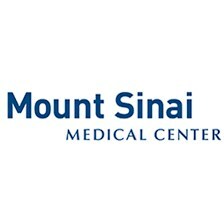Mount Sinai Researchers Find Promising New Drug Targets For Cocaine Addiction
NEW YORK, Jan. 20, 2014 /PRNewswire-USNewswire/ -- Researchers from the Icahn School of Medicine at Mount Sinai have identified a new molecular mechanism by which cocaine alters the brain's reward circuits and causes addiction. Published online in the journal Proceedings of the National Academy of Sciences by Dr. Eric J. Nestler, MD, PhD, and colleagues, the preclinical research reveals how an abundant enzyme and synaptic gene affect a key reward circuit in the brain, changing the ways genes are expressed in the nucleus accumbens. The DNA itself does not change, but its "mark" activates or represses certain genes encoding synaptic proteins within the DNA. The marks indicate epigenetic changes--changes made by enzymes--that alter the activity of the nucleus accumbens.
In a mouse model, the research team found that chronic cocaine administration increased levels of an enzyme called PARP-1 or poly(ADP-ribosyl)ation polymerase-1. This increase in PARP-1 leads to an increase in its PAR marks at genes in the nucleus accumbens, contributing to long-term cocaine addiction. Although this is the first time PARP-1 has been linked to cocaine addiction, PARP-1 has been under investigation for cancer treatment.
"This discovery provides new leads for the development of anti-addiction medications," said the study's senior author, Eric Nestler, MD, PhD, Nash Family Professor of Neuroscience and Director of the Friedman Brain Institute, at the Icahn School of Medicine at Mount Sinai. Dr. Nestler said that the research team is using PARP to identify other proteins regulated by cocaine. PARP inhibitors may also prove valuable in changing cocaine's addictive power.
Kimberly Scobie, PhD, the lead investigator and postdoctoral fellow in Dr. Nestler's laboratory, underscored the value of implicating PARP-1 in mediating the brain's reward center. "It is striking that changing the level of PARP-1 alone is sufficient to influence the rewarding effects of cocaine," she said.
Next, the investigators used chromatin immunoprecipitation sequencing to identify which genes are altered through the epigenetic changes induced by PARP-1. One target gene whose expression changed after chronic cocaine use was sidekick-1, a cell adhesion molecule concentrated at synapses that directs synaptic connections. Sidekick-1 has not been studied to date in the brain, nor has it been studied in relation to cocaine exposure. Using viral mediated gene transfer to overexpress sidekick-1 in the nucleus accumbens, investigators saw that this overexpression alone not only increased the rewarding effects of cocaine, but it also induced changes in the morphology and synaptic connections of neurons in this brain reward region.
The research opens the door to a brand new direction for therapeutics to treat cocaine addiction. Effective drug therapies are urgently needed. National data from the US National Institute of Drug Abuse reveal that nearly 1.4 million Americans meet criteria for dependence or abuse of cocaine.
The US National Institute of Drug Abuse (P01DA008227) supported this research.
About the Mount Sinai Health System
The Mount Sinai Health System is an integrated health system committed to providing distinguished care, conducting transformative research, and advancing biomedical education. Structured around seven member hospital campuses and a single medical school, the Health System has an extensive ambulatory network and a range of inpatient and outpatient services--from community-based facilities to tertiary and quaternary care.
The System includes approximately 6,600 primary and specialty care physicians, 12-minority-owned free-standing ambulatory surgery centers, over 45 ambulatory practices throughout the five boroughs of New York City, Westchester, and Long Island, as well as 31 affiliated community health centers. Physicians are affiliated with the Icahn School of Medicine at Mount Sinai, which is ranked among the top 20 medical schools both in National Institutes of Health funding and by U.S. News & World Report. For more information, visit www.mountsinai.org.
Find Icahn School of Medicine at Mount Sinai on:
Facebook: http://www.facebook.com/icahnmountsinai
Twitter: @icahnmountsinai
YouTube: http://www.youtube.com/mountsinaischool
This news release was issued on behalf of Newswise™. For more information, visit http://www.newswise.com.
SOURCE Mount Sinai Medical Center
WANT YOUR COMPANY'S NEWS FEATURED ON PRNEWSWIRE.COM?
Newsrooms &
Influencers
Digital Media
Outlets
Journalists
Opted In





Share this article